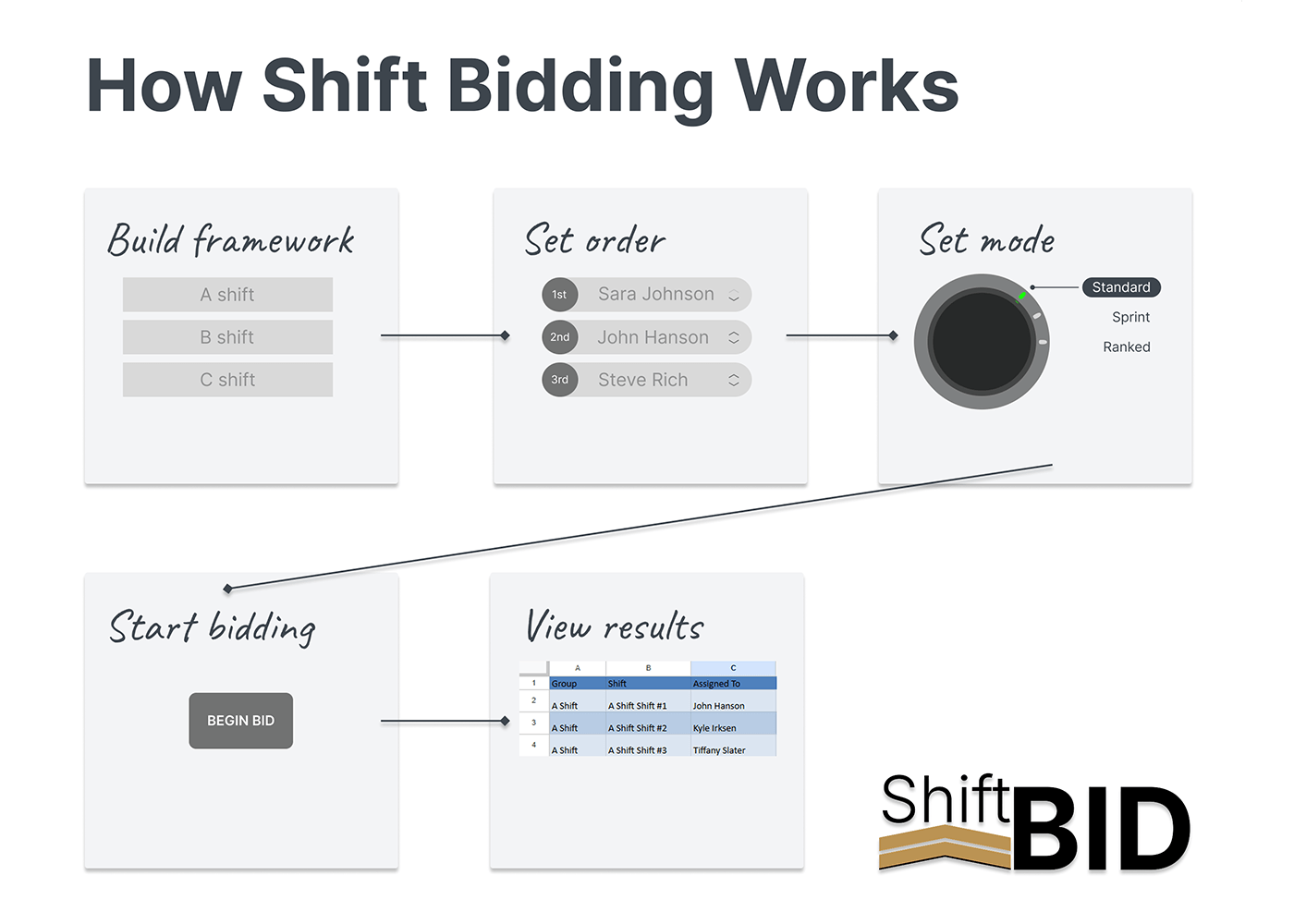Seniority-Based Shift Bidding
Employees choose their desired shifts in order of seniority. Seniority is usually denoted by hire date, but this can be configured in multiple ways depending on union rules and how your organization sees seniority. ShiftBID gives your staff the ability to create the schedule framework, set up the bid structure, execute bidding, and download the results. It's the most straightforward, out-of-the-box tool for doing shift bidding.
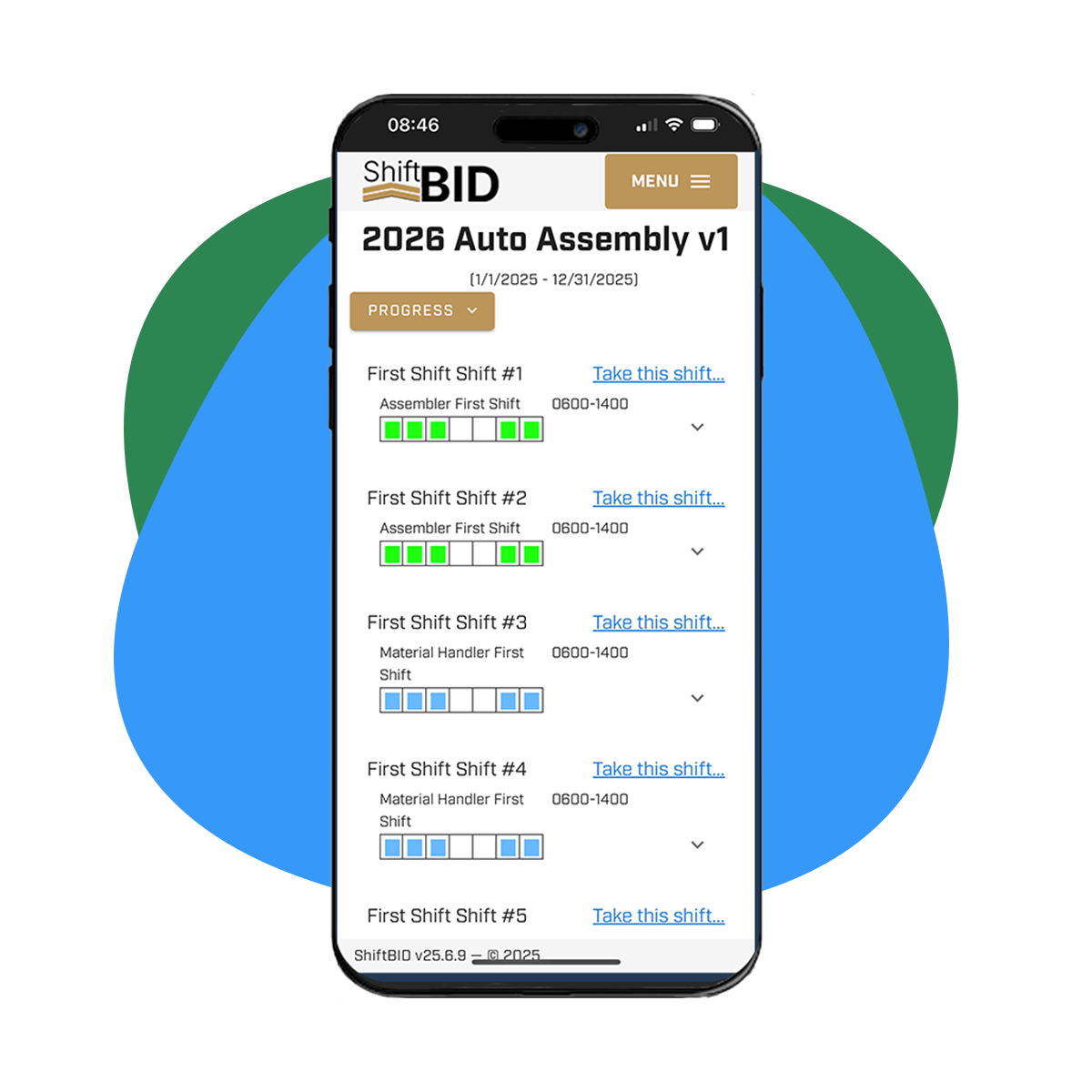
Union
Agreement compliance
US-based
Sales, support & dev
$500
starting per year
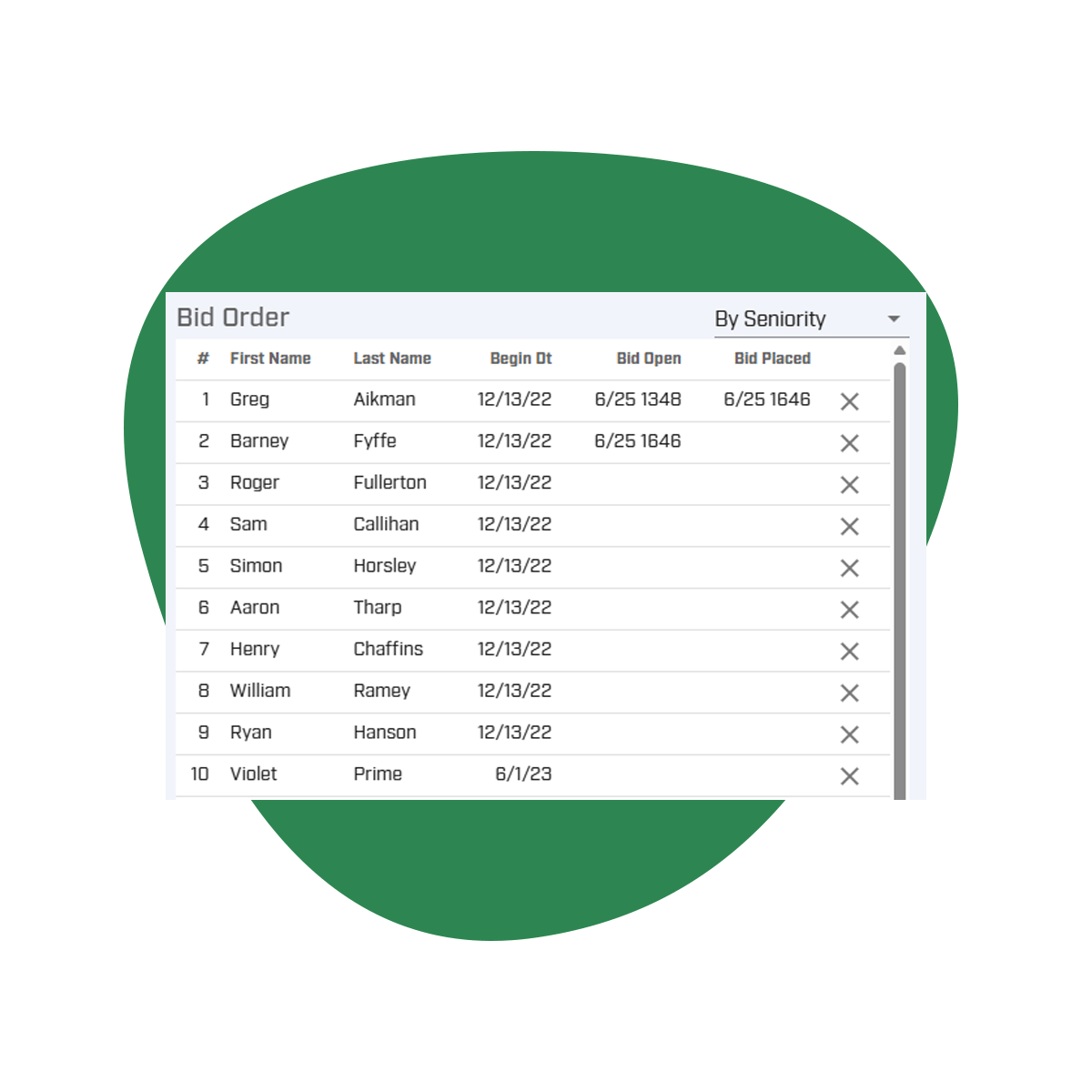
Automation
Automated seniority calculation
It's way less expensive than a full scheduling suite. It's easy for administrators to set up. You don't have to download any apps (and you're employees don't have to either). We are built and supported with all US-based staff.
Notifications
Realtime notifications
ShiftBID notifies an employee when it's their turn to bid. They can receive alerts via SMS or email.
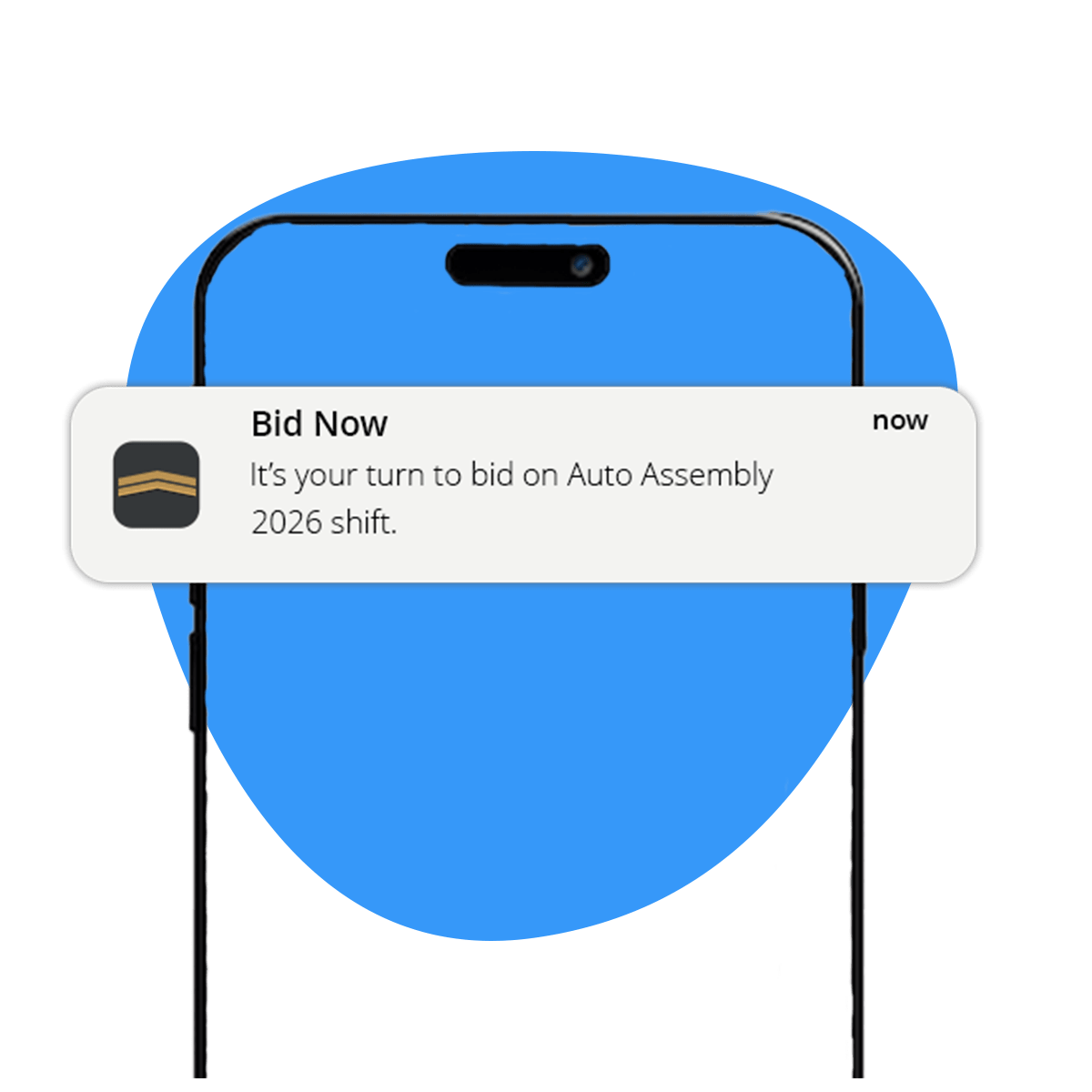
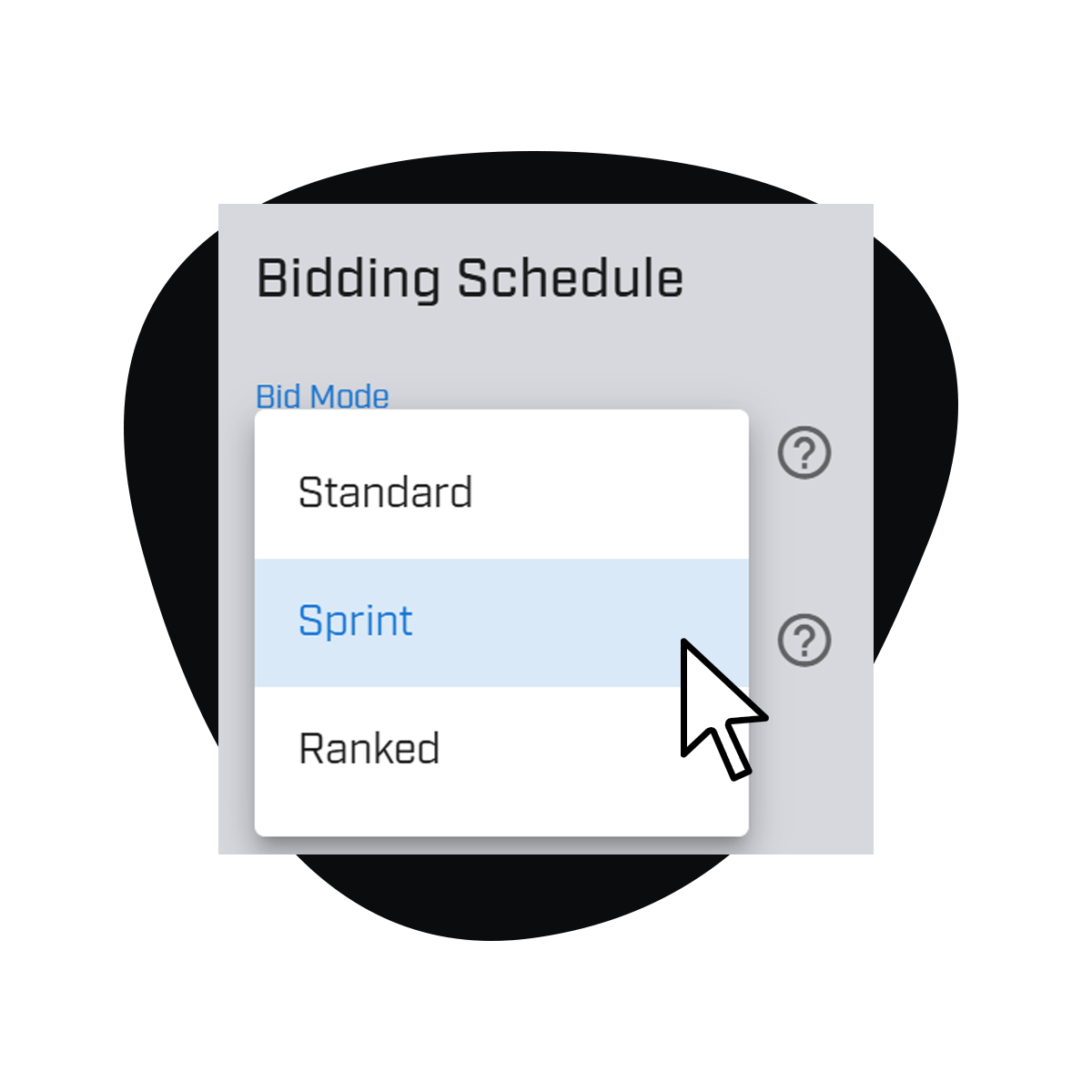
Modes
Three bidding modes
There are three modes (called scheduling styles) that determine the method by which bidding happens: Standard, Sprint, and Ranked.
Flexible
Employees can bid from anywhere
Employees receive an SMS notification and an email when they need to make a shift selection.
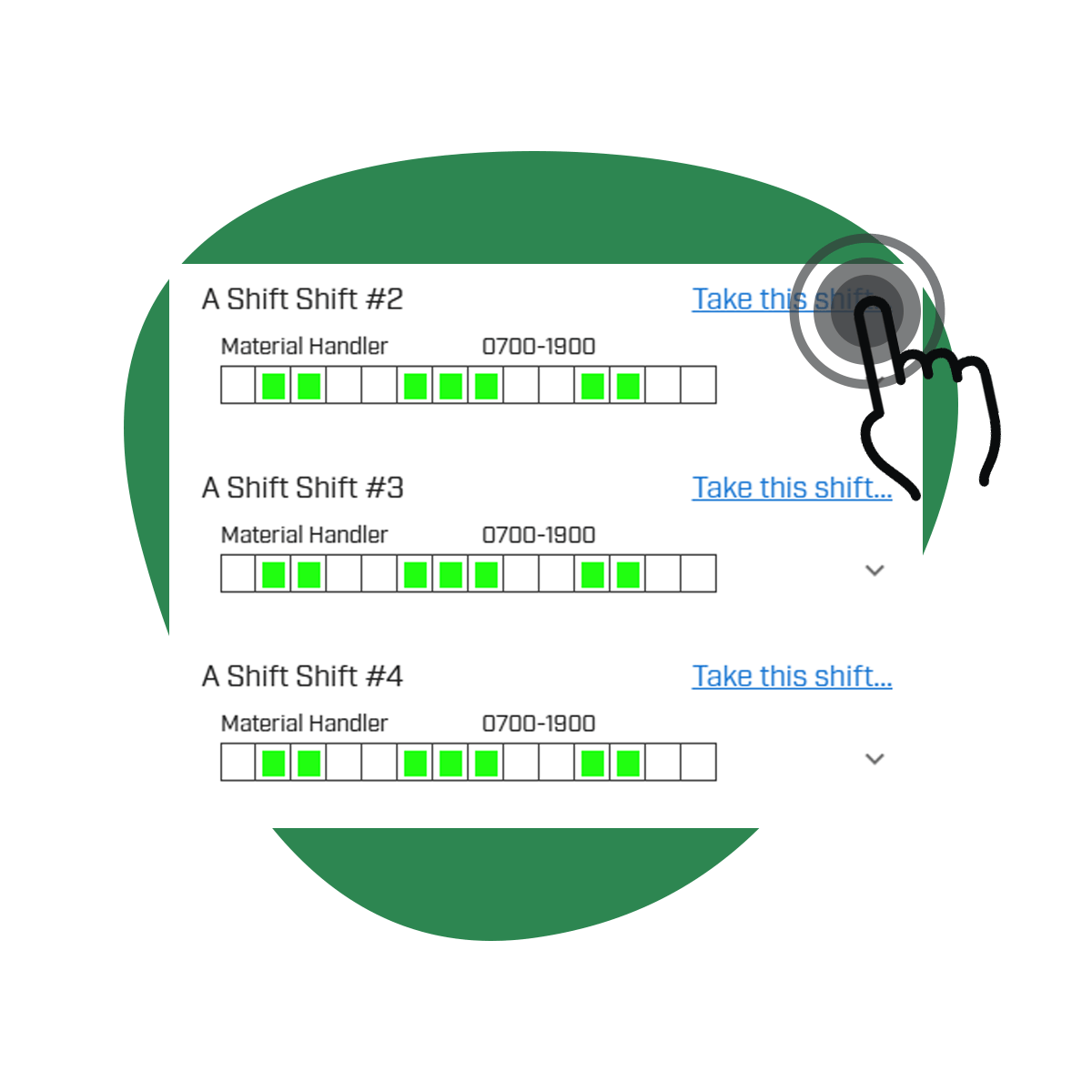
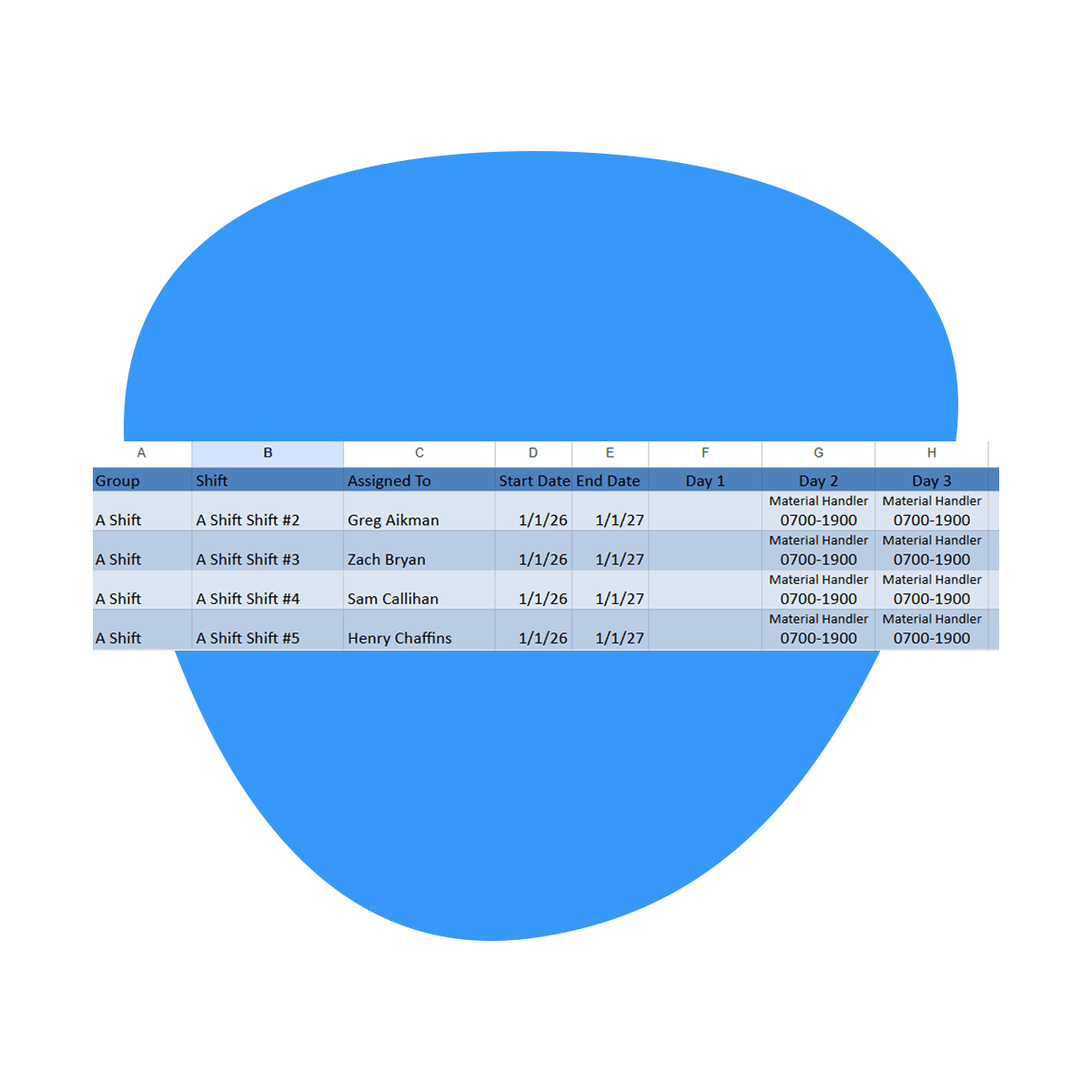
Exportable
Download CSV with results
Once bidding is complete, the administrators can download a complete CSV with all schedule information.
Planning ahead
Schedule bids in advance
Set a scheduled date and time for bidding to begin.
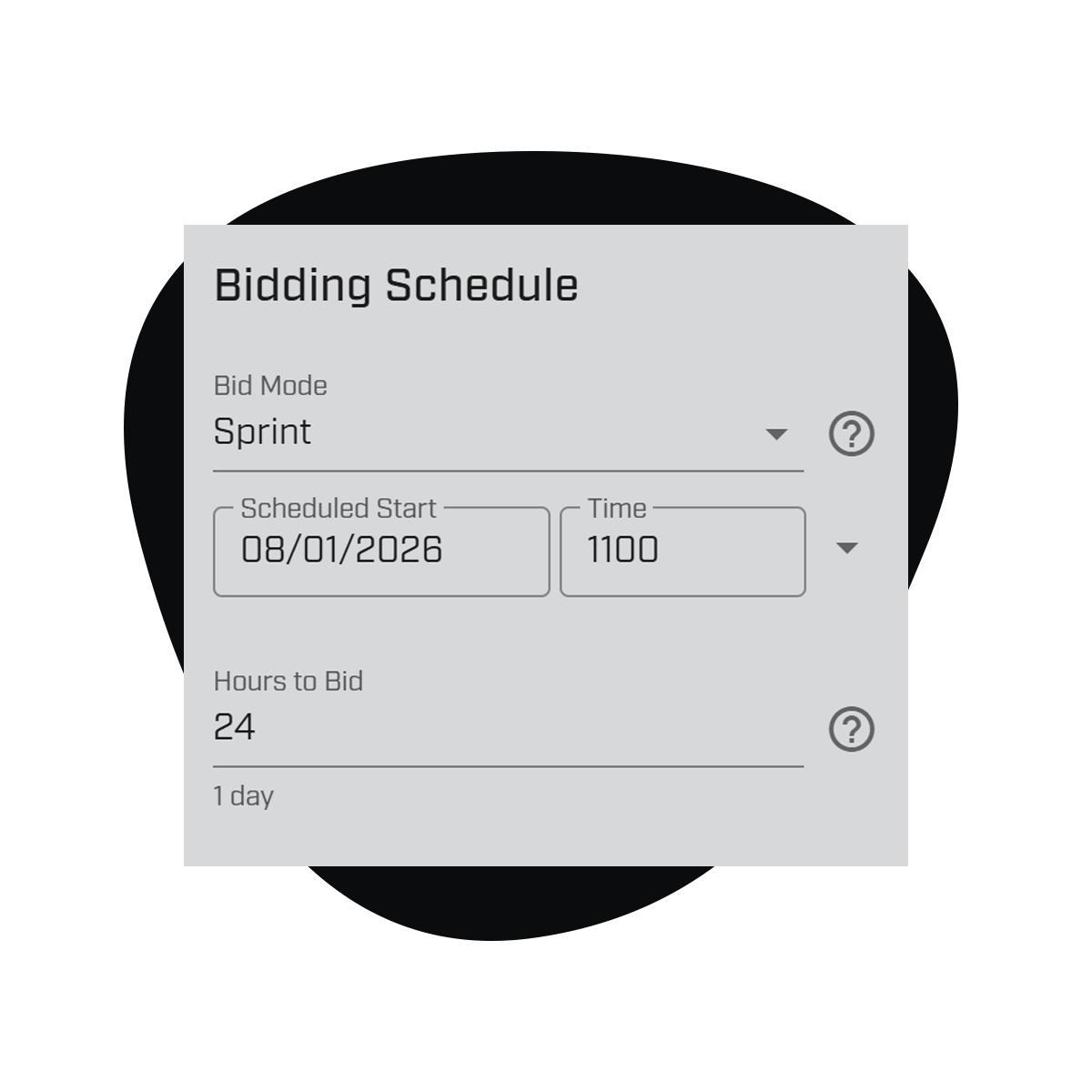
How it works
Benefits
- Complies with union collective bargaining agreements - Helps you ensure compliance with existing negotiations and keep positive labor relations.
- Increased employee retention - Giving preference to senior employees rewards loyalty and experience.
- Reduced conflict - This won't completely eliminate grievances from your staff, but it creates a predictable bidding experience.
- Saves time - Bidding by seniority is much faster than setting a custom bidding order.
- Predictability for staff and employees - Employees know what to expect with a seniority-based structure
Use Cases
Unionized Manufacturing Plant
A manufacturing facility operates 24/7 with three shifts. The plant is unionized, and the collective bargaining agreement mandates that annual shift assignments (e.g., permanent day, evening, or night shifts for the upcoming year) must be allocated strictly by seniority. ShiftBID shift bidding software automatically calculates and ranks all employees by their exact hire date/seniority, ensuring compliance with the union agreement. When the annual bidding window opens, employees are notified that it's their turn to bid via email/SMS. The most senior employee gets first access to the entire pool of available shifts. Once they make their selection, the system immediately moves to the next most senior employee.
Large Call Center
A large customer service call center operates 16 hours a day, 7 days a week. Employees have varying preferences for start times, end times, and specific days off (e.g., weekends vs. weekdays). While some flexibility is allowed, seniority is used to distribute the most desirable schedules that offer weekends off or specific morning/evening shifts. ShiftBID presents all open shifts for the upcoming scheduling period (e.g., monthly or quarterly). Employees are notified when it's their turn to bid based on their seniority rank. They can review all available shifts and select their top choices.
More senior agents get the first opportunity to lock in schedules that align with their work-life balance needs.
The Ranked bidding mode could be used, where seniority determines the order of preference fulfillment. A senior agent's preferences are weighted higher and fulfilled before a junior agent's.
Questions we get asked
$500 per year
up to 50 employees bidding
+$10/year per additional employee

